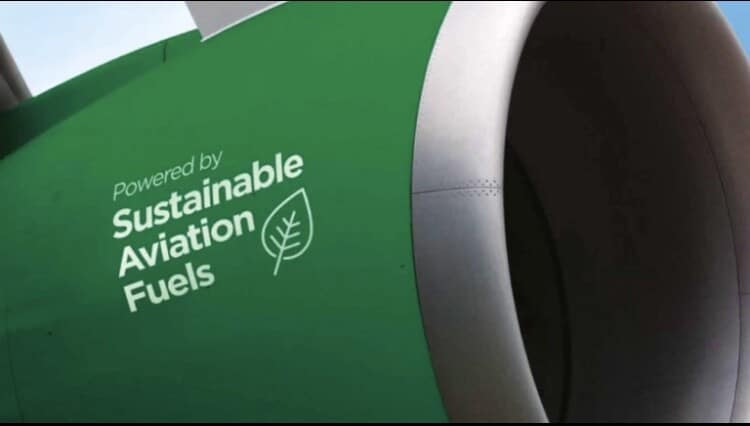
European airline leaders have called for urgent action to help the continent’s carriers reach net zero emission status by 2050.
A recent event, held by EU politics and policy newspaper The Parliament and industry group Airlines International Representation in Europe (AIRE), and hosted by Eliza Vozenmberg, the chair of the European Commission Transport & Tourism Committee, heard that the European airline sector is facing a critical shortage of sustainable aviation fuel (SAF) – currently the most effective means of airlines transitioning to a greener future.

Delegates heard that while other green fuel initiatives, including hydrogen, are longer term solutions, SAF demand will balloon to 450 billion litres by 2050, while the estimated amount set to be produced next year is just 8 billion litres.
AIRE director general Michael Harrington said a lack of available feedstock that meets current EU Renewable Energy Directive rules means there is a critical shortage of SAF available.
Mr Harrington suggested the EU is being too restrictive, with much stricter definitions of what amount to SAF than the International Civil Aviation Organisation.

The EU excludes feed crops and food from its SAF feedstocks list. Mr Harrington said these restrictions are causing unnecessary obstacles and said there needs to be a quick temporary revision of how SAF is defined in Europe.
Mr Harrington proposed the EU allow the use of vegetable oils – as is done elsewhere – as a feedstock for SAF.
“If we could take something like 3 million tonnes, this would physically cut fossil fuel emissions by 10 million tonnes,” he said.
Meanwhile, Airports Council International (Europe) – ACI – has called for a fresh industrial strategy around the decarbonisation of Europe’s airline industry.
ACI chiefs want an acceleration of R&D work, a scaling up of SAF availability, and improved access to low-carbon technology financing.
“Time is of the essence. As COP29 draws to a close, it is clear a fully aligned, effective and collaborative effort between all stakeholders is needed to unlock the necessary policies and financing that will enable European aviation to reach net zero carbon emissions by 2050,” ACI Europe said.




